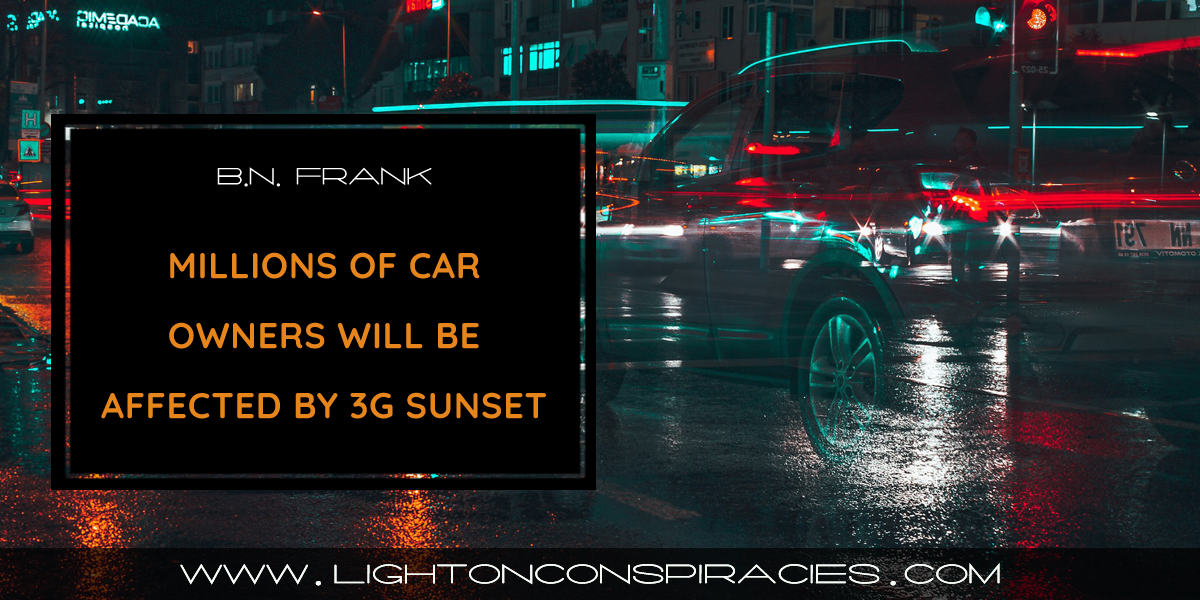Shutting down the 3G network has alarm companies and automakers freaking out. In the meantime, telecom companies and the Federal Communications Commission (FCC) remain unsympathetic.
From Zero Hedge:
“A Slow Motion Disaster”: Network Sunset Of 3G Will Wreak Havoc For Millions Of Vehicles On The Road
by Tyler Durden
While the world is looking forward to the future of 5G – as soon as we can figure out how to implement it without screwing up our entire air travel infrastructure – the demise of 3G is quietly wreaking havoc with some automakers, according to a new report from CNBC.
“Millions of car owners” are affected by 3G dropping off the map, the report notes. Many vehicles use 3G networks for updates and remote communication, including models manufactured by Tesla, Audi, Honda and Nissan.
The affectionately titled “network sunset” of 3G renders some features on these models, and many other products including home security systems, obsolete. While some vehicles will still function normally, CNBC notes that “others could lose automatic emergency response services in the event of a crash and certain infotainment and convenience features such as real-time navigation and smartphone app features such as pre-cabin conditioning”.
Kenny Hawk, CEO of Mojio, commented: “This is crazy times, when you think about it. 3G did not come out that long ago and the first sunset is already happening. You’ve got a lot of vehicles out there … that had 3G embedded telematics control units, modems and antennas that will only work on 3G networks.”
AT&T is leading the charge in winding down 3G, and will be followed by T-Mobile and Verizon. AT&T told CNBC: “Since February of 2019, we have worked with automotive manufacturers to help them transition their connected cars to newer technology before 3G services end February 22. Customers have received, and will receive additional, communications as we work with them on this transition, including direct mail, bill messages, emails and text messages.”
William Wallace, Consumer Reports’ manager of safety policy, called the situation a “slow motion disaster”. “Congress needs to get on this and make sure that this total disaster doesn’t happen again with 4G,” Wallace said.
He continued: “We’re talking about millions of vehicles that will lose features that were promised to owners, and that no longer will be delivered. In some cases, those features are safety features, things that can help them from dying or getting seriously injured after a crash.”
Guidehouse Insights principal analyst Sam Abuelsamid added: “Manufacturers, on a case-by-case, are taking a look at how many people are actually impacted by this shutdown of 3G and as they inevitably do with anything, they’re making a decision about are there enough people that are going to be impacted by this to justify developing some sort of upgrade?”
“Although these circumstances were created by factors beyond our control, we sincerely regret any inconvenience this may cause,” Toyota told its owners.
The FCC is supposed to protect Americans by regulating cable and telecom industries. It has failed to do so for decades and been labelled a “captured” agency (see 1, 2). Numerous lawsuits have been filed against the FCC. In fact, last year, a federal court ruled in favor of organizations and petitioners that sued the agency for NOT adequately protecting Americans from wireless radiation exposure (including 5G).
A group of telecom experts also filed a lawsuit against the FCC. It revealed that Americans have been overcharged for telecom services that some have still not received.
Regardless, the agency and the federal government continue to permit, promote, and fund the deployment of unsafe and unreliable 5G and Wi-Fi instead of safer and more reliable fiber optics to the premises (FTTP) connections and copper landlines (see 1, 2).













